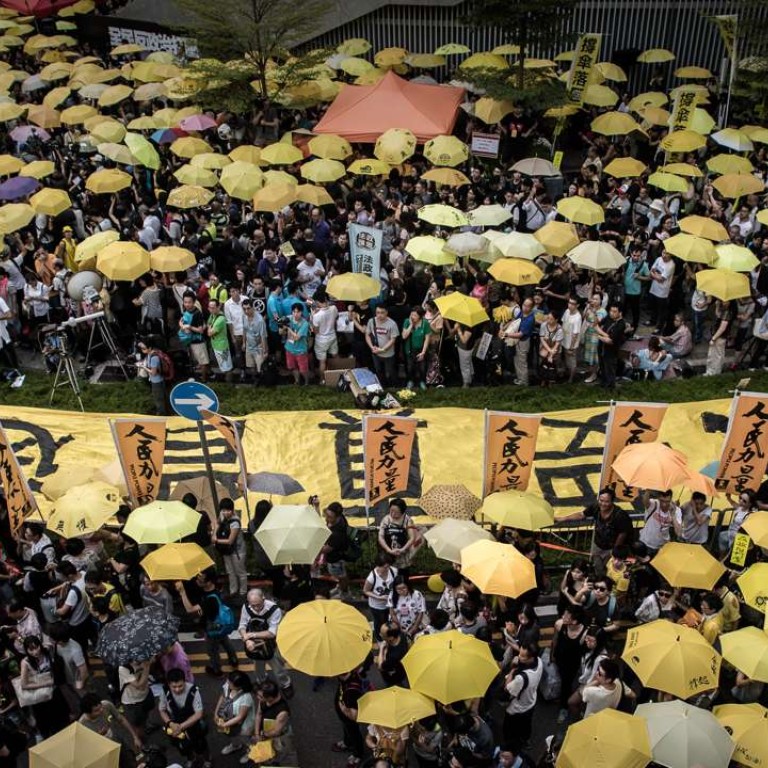
How Hong Kong came to be governed by an oligarchy
After the Occupy movement ended, the government hoped political reform would take a back seat to livelihood issues. However, livelihood issues are inextricably linked to politics. Without a working political system to aggregate diverse views and interests, the implementation of livelihood policies will become unavoidably opportunistic, populist and fragmented.
The background to this situation lies with the political forces that formed around two large coalitions in the lead-up to 1997: the democrats versus the establishment.
The democratic coalition had initially two groups of supporters – the social liberals and the liberal democrats. The social liberals favoured an expanded role for social policies, wanted to limit economic liberalism, and were ready to use populist democracy to realise their goals.
The liberal democrats were more concerned about building liberal democracy to shield Hong Kong from Beijing and protect civil and economic liberties, freedom of speech, freedom of the press, rule of law, and private property rights.
The establishment coalition also contained several diverse interests. Business and professional interests supported the rule of law, private property rights, free markets, and low taxes, but were divided in their support for political democracy. Some supported it as a system to uphold the rule of law and protect private property rights.
But others were more worried that all forms of political democracy would succumb to populist pressure and sooner or later infringe upon private property rights in the name of a populist majority. They did not trust the democratic coalition, especially its social liberalism.
Beijing was, at least initially, optimistic that the administrative machinery inherited from the British could provide an effective governance structure for “one-country two-systems” to operate with a high degree of autonomy. They were also more sympathetic to the business and professional interests and their concerns about populist democracy. Traditional patriotic grassroots organisations were mobilised to support and join the establishment coalition to rival the social liberal interest groups.
But the optimism was misplaced. Once the nomination and selection of the chief executive was transferred to a body of representatives from Hong Kong and the legislature was returned through geographic and functional constituencies, the critical features of the old British model of governance were subverted.
The British colonial governor could dismiss a member of the ruling coalition from a seat of power, which gave him great leverage over this group. The post-1997 administration has not had this control over the appointment and discipline of members of the ruling coalition. It has also had to share the blame for their failures, but cannot take credit for their successes.
A ruling coalition made up of successful businessmen and professionals always runs the risk of becoming a rent-seeking coalition – a governing oligarchy. The post-1997 administration, under pressure from the democratic coalition, has had to rely on this group to govern, but it has been fighting a losing battle over rent-seeking. It has had to fill its ranks with more loyalists than achievers to govern effectively. In a fundamental and profound way the political system had changed.
The administration has also recruited traditional patriotic grassroots organisations as the “junior partner” (and sometimes a reluctant one) of the establishment to rival the social liberal interest groups that had now become part of the democratic coalition.
Under the British, the social liberals were the voice of social conscience from the grassroots, often critical of government policies, but played an indispensable role in effective governance. They were a different type of junior partner of the old ruling coalition.
This change of roles is not surprising, but the politicisation of social support for the needy could not have come at a worst time because new social problems have appeared.
A much higher fraction of low-income households, divorced and single parent households with children, and recent immigrant households now live in the public rental housing estates, especially in the northern New Territories.
The delays and failures in getting help to these families and neighbourhoods that are poor, isolated, and feel abandoned and without hope has fed growing support for radical politicians by a new generation of young voters. Politics cannot help these people; it can only help them to vent their frustrations and misery on the streets and in violence.
The tug-of-war over the political centre has given way to radical angry politics that is fragmenting the democratic coalition and, within the establishment coalition, extreme hardline voices that are gaining in strength. Both sides embrace radical populist politics.
Politics is about everyone’s livelihood. Changing the political rules at the same time as momentous economic and social changes will create hiccups that are best approached through reason, tolerance and accommodation. If Beijing fails to demand such a standard of its officials on the ground, then everyone will cease to be sober. Whether Beijing likes it or not, it is the only player that wields the powers possessed by former British governors.
Richard Wong Yue-chim is the Philip Wong Kennedy Wong Professor in Political Economy at the University of Hong Kong

